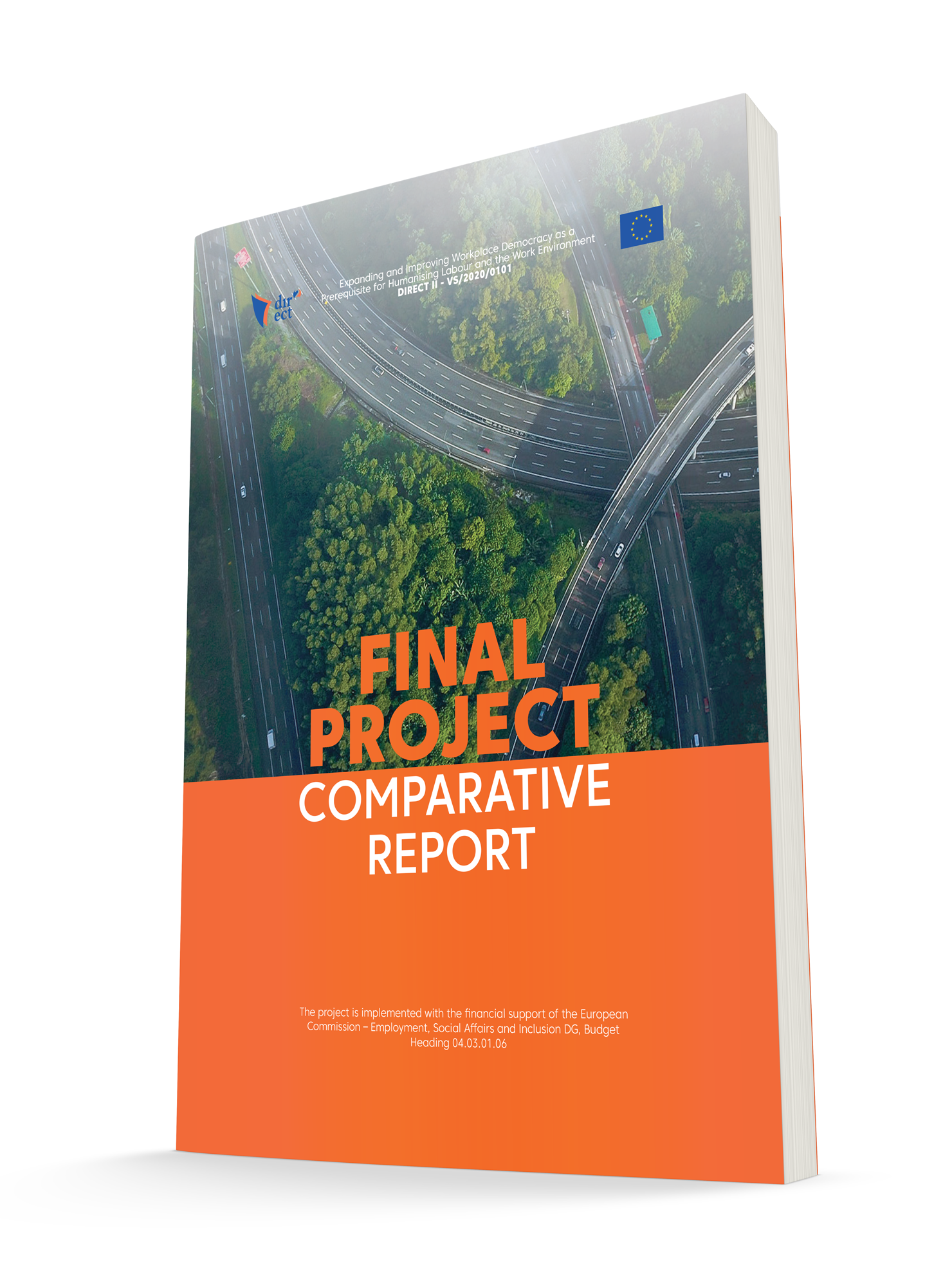Executive summary
The project DIRECT II, promoted by the Confederation of Independent Trade Unions in Bulgaria, focuses on trends in direct employee participation in six EU Member States aiming to explore the impact of direct participation on industrial relations at the company level and to explore a number of good practice examples of enterprises in the partner countries that have successfully introduced new technologies (of whatever form) with the full co-operation of employees, through a process of direct participation.
The project also seeks to continue to explore some of the practices of direct participation, which are introduced under traditional technologies and to compare them with the practices of direct participation, which were introduced as a result of the introduction of new technologies. The project is aiming to research if direct participation in management, even in the introduction of new technologies, can improve efficiencies, productivity, better work organisation and the commitment of the workforce, including opportunity for workers to suggest ideas for organisational innovation; contribute to improving workers qualifications and skills; humanise the working environment through, for example, the introduction of flexible working time; improved occupational health and safety; allow for flexibility in executing tasks, including job rotation and homeworking; as well as appropriate forms of remuneration relating to the introduction of new technologies.
Workplace democracy, especially direct participation in governance (management), besides improving labour motivation and efficiency of production/services, can also be used to humanise work and the working environment and also increase job satisfaction and workforce development. It is a system of work organisation that allows for the input of employees into the day-to-day operations of the enterprise. It can include both consultation and delegation arrangements in the workplace, through individual and/or group participation. The promotion of direct participation can be a competitive strategy for an enterprise, contributing to continued economic recovery within the EU and making European enterprises more competitive in the global marketplace by been more efficient, lowering production costs, allowing for greater innovation and providing for increased commitment among employees. Many previous studies have shown that all forms of workplace democracy, especially direct participation in governance, result in improved worker motivation and increased productivity.
With the rapid advance and application of digital technologies, EU workplaces are changing rapidly. To stay competitive, to retain market share and, most importantly, maintain employment levels, companies and workers must adapt to these changes. In this context, digitalisation refers to integration and application of different digital technologies and innovations across the social and economic fields, such as, computerisation, automation, robotics, manufacturing technologies and social media.
Consequently, the introduction of new technologies allows management and employee representatives, working together, to make the choices best suited to their particular enterprise and business sector, such as, the appropriate selection of hardware, the design and configuration of software, and the organisational changes required for the use of the technology systems selected. The choices made can have important implications for the success of the technology change, its impact on employment levels, the reorganisation of the workforce, the skill needs and the quality of working life.
Achieving such a work environment would be more effective if it is associated with forms of representative participation, such as provision of information and consultation by management, health and safety committees, options for advisory or full participation in supervisory or management bodies etc., as well as representation by trade unions for the process of collective bargaining.
Download the full text of the document (PDF)


